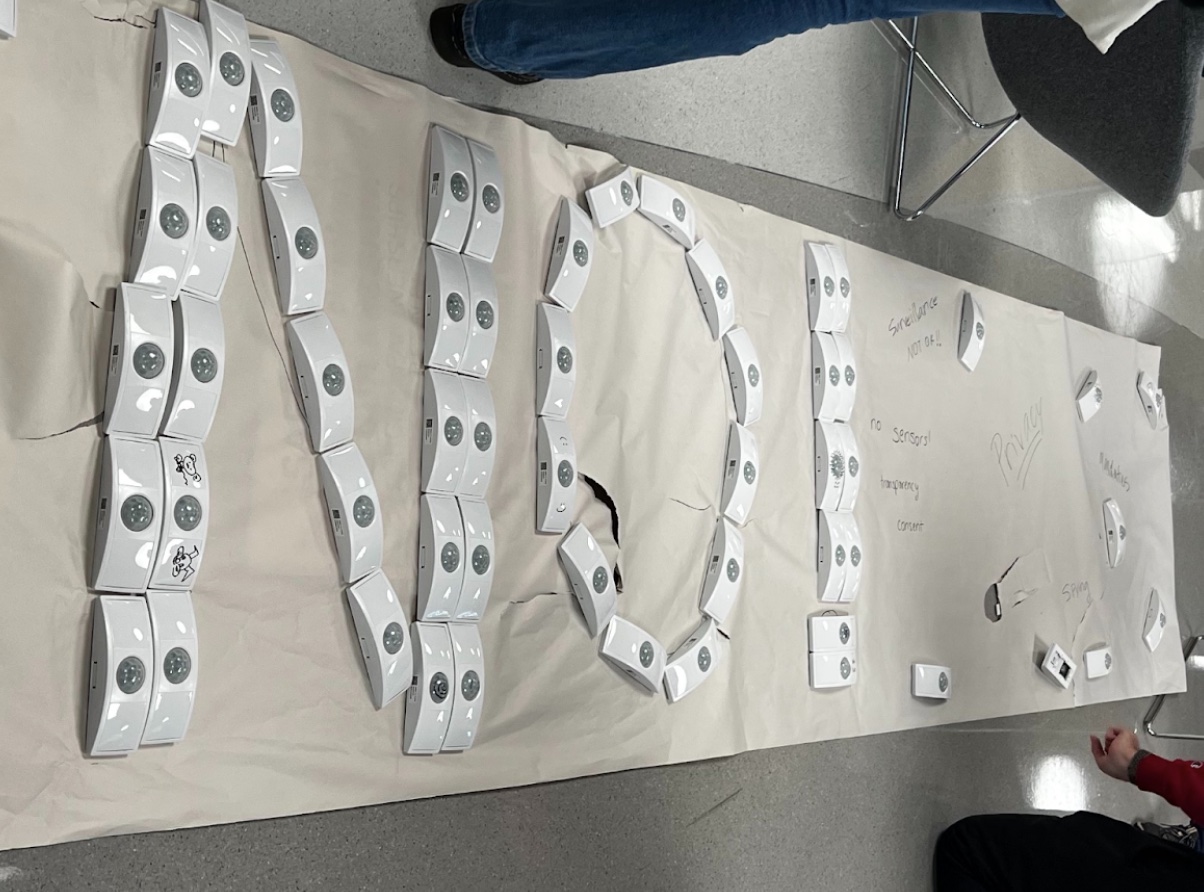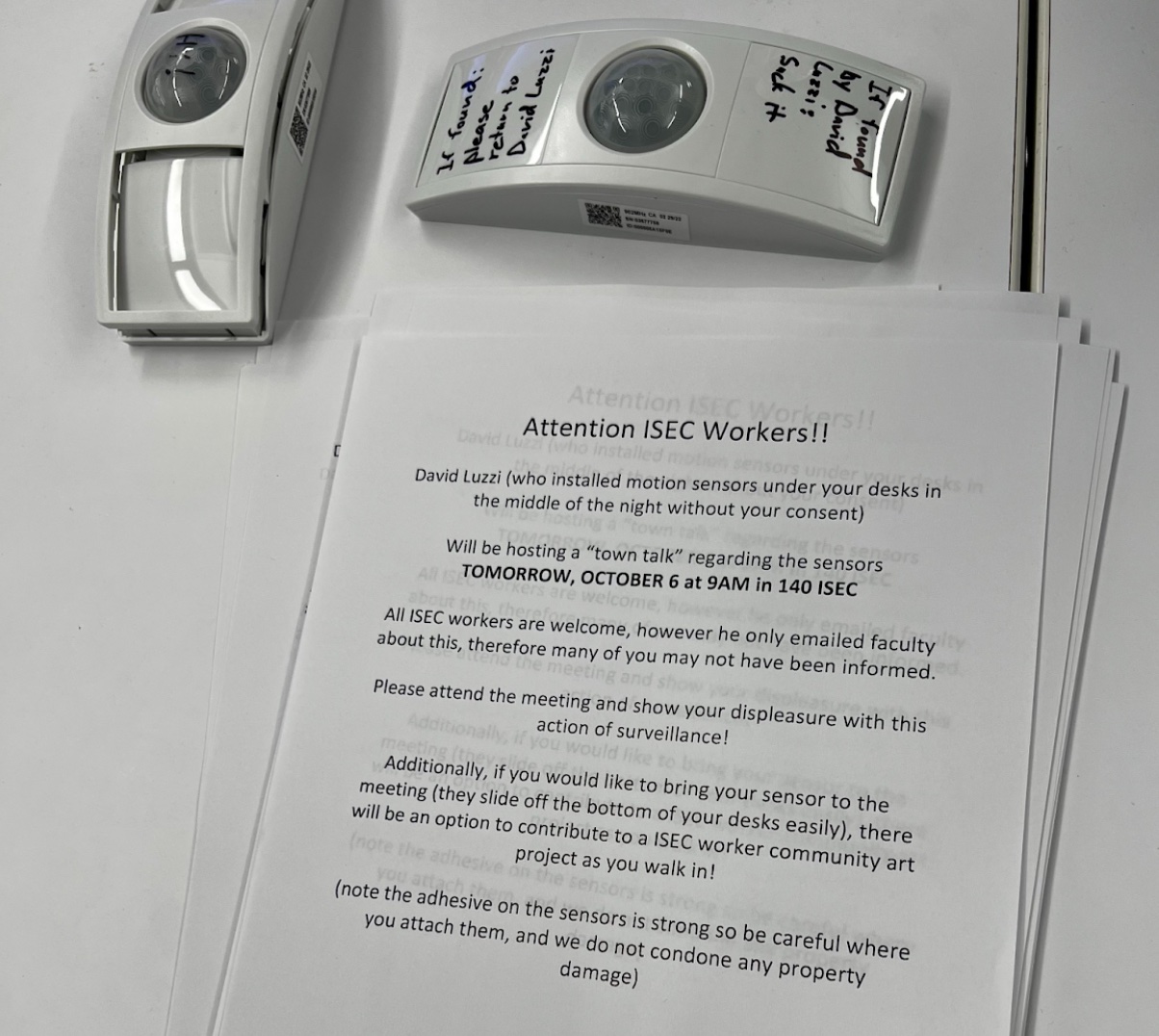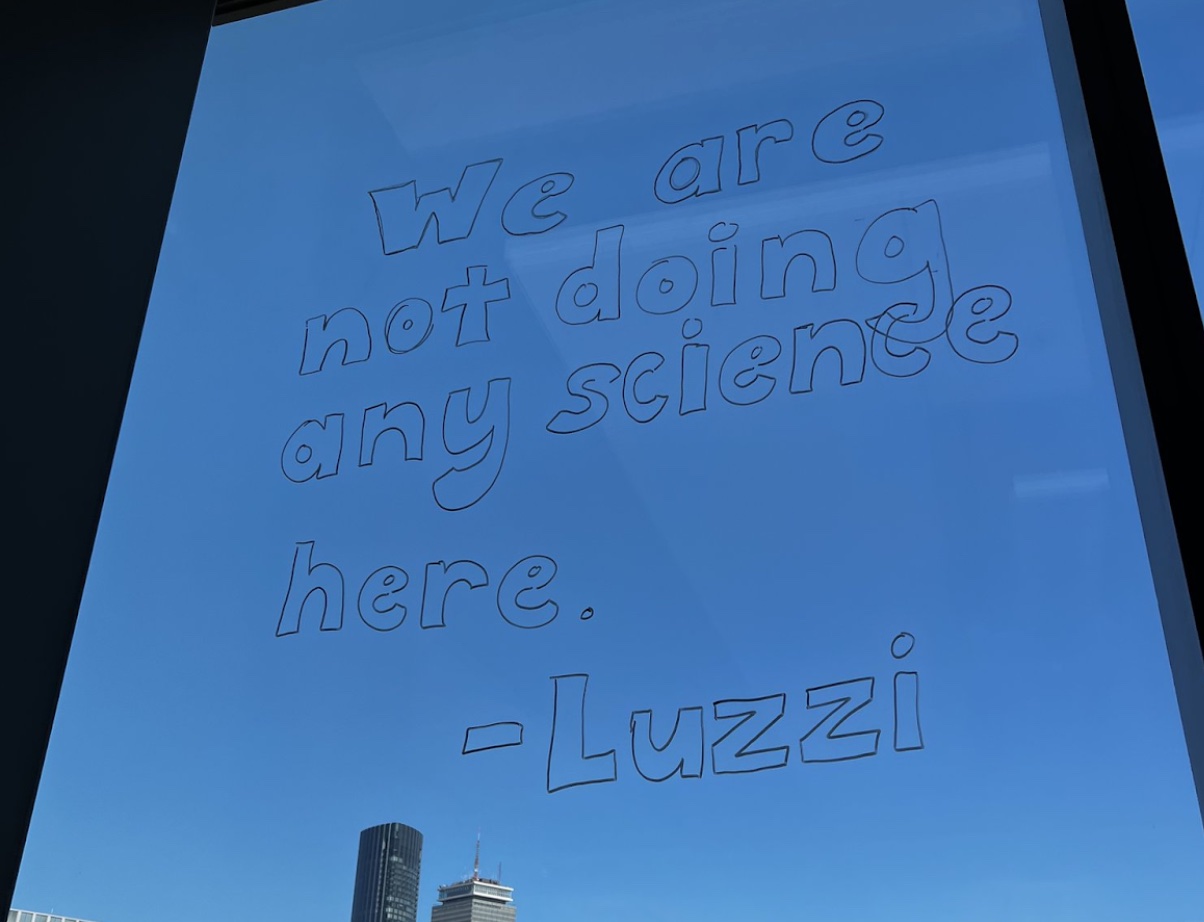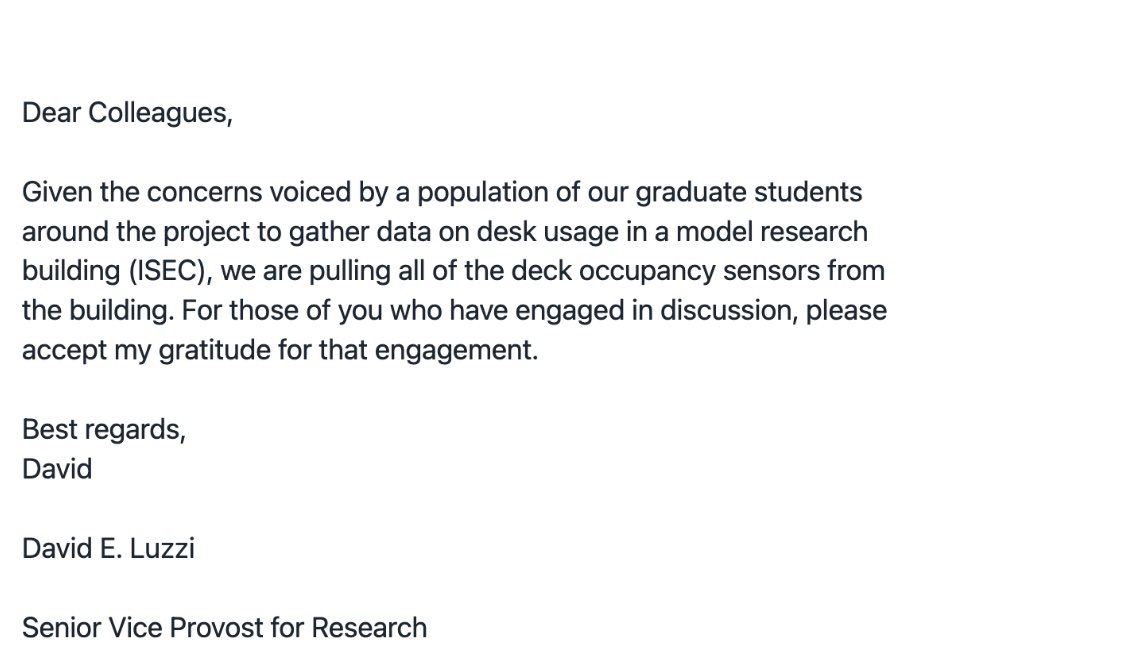It’s Not Science, Just Surveillance (and it's Under Your Desk)
29 Nov 2022
Today we hear a story of swift collective action in the face of bad science. Last month, the Senior Vice Provost for Research at Northeastern University did worse than bad science; he installed heat sensors at groin level under the desks of graduate student workers, without their consent. So, the students, many of them PhD students in the Privacy and Cybersecurity Institute, organized to fight back. Within 24 hours the sensors, Northeastern removed the sensors. As similar interference creeps up at Carnegie Mellon University and other campuses worldwide, it’s a story worth sharing.

Art should say something about non-consensual surveillance... like, NO!
The Worker’s Perspective
On Oct. 6, Northeastern’s Senior Vice Provost David Luzzi had motion sensors installed under all of our desks in the Interdisciplinary Science & Engineering Complex (ISEC) at Northeastern University. ISEC contains workspaces for graduate student workers across Computer Science, Neuroscience, Engineering, and other disciplines, and is a highly desirable workspace on campus. The sensors were installed overnight and without our consent.
The alleged reason for the sensors was to conduct a study on desk usage. Reader, we have assigned desks, and we use a key-card to get into the room, so, they already know how and when we use our desks. Most likely the sensors were installed as part of a coordinated effort to push us out of our existing work-space, or to make us share our desks with other students via a hotelling system, an en-vogue new cost-saving measure that’s terrible for research.
So, we – Northeastern students and faculty – wrote a letter to David and to Northeastern’s President Joseph E. Aoun requesting the sensors be removed, noting:
- they serve no scientific purpose
- they are intimidating
- they change our behaviors (students don’t want to be surveilled thus do not use their desks) so the data is flawed
- the university chose not to go through IRB, the federally mandated Institutional Review Board that signs off on ethics for research
- indeed, David didn’t even bother to ask the IRB folks if this was something for which he’d need IRB approval
- being surveilled is creepy and unnecessary
- and so on.
The letter was widely signed, and, I think, ignored by David. He did an impromptu “listening session” with the 6th floor Khoury College of Computer Sciences students, in which he said something about how we as students “you must trust the university since you trust them to give you a degree.”
Obviously, we contest the use of the word “give.”
Anyway, the 6th floor ISEC students removed all the sensors and stuck them on the kitchen table. You can find a PDF spec for the sensors here.
Then a few days later, with less than 72 hours warning, David scheduled another “listening session” at 9am, and only told the professors. So, we disseminated flyers to impacted graduate students.

In the listening session, David claimed that the devices are not subject to IRB because they don’t sense humans in particular - they sense any heat source. Implying that there are, I don’t know, rats and kangaroos walking around the 6th floor of ISEC?
Subsequently, the sensors found a new home, as a public art piece on the floor of the ISEC lobby. In the spirit of ISEC, this is an interdisciplinary work, with contributions from surveilled graduate students in a myriad of departments.

Below is a screenshot of my email to David. I won’t include his response, but it suffices to say, it was entirely dismissive and in bad faith.

Another gem: in the meeting, when asked why he didn’t seek IRB approval, David said, “we are not doing any science here.” Leading to this gem on the 6th floor ISEC window, below:

I’ve created a repository to hold relevant PDFs & other documents. I’ve uploaded a PDF of the widely-circulated flier here, and meeting notes another student recorded from the “listening session” with David, here.
Some highlights from the notes:
- David mis-genders a student
- Student: who are we monitoring if not people. David: Any heat source.
- From @eysasaur, “Another meeting highlight was when someone pointed out the cost of these devices were more than graduate students make in a year and Luzzi thought it’d be a good idea to compare other costs in terms of ~how many PhD stipends is this~”
- Another student commented: “My favorite part from the notes is when a student complained about wireless interference from the sensors ruining their experiment, and Luzzi said that there was a facility in Burlington (which is a 4 hour drive from Boston!), and then said “Stuff like this happens, this is maybe a first experience for you but it is not for me.” Like, yeah, it happened because of you!
As is often the case, some conversation about this whole mess can be found on Reddit, here.
But in the final round, we won. Luzzi wrote to concede:

Nevertheless, I am confident they will make more attempts to surveil us in other ways, and/or justify taking our research space from us. And they may win. More broadly, I’ve been alerted that similar crap is happening at Carnegie Mellon University, another engineering-heavy school – which has installed networked microphones in the offices, hallways and conference rooms of its newest building (read David Gray Widder’s account of this here!). Non-consensual surveillance is never OK and must be fought, whenever and wherever it happens.
This kind of nonsense is precisely why we, graduate students of Northeastern, need a union. If you are a graduate student worker at Northeastern University and want to join the majority in forming a union, email me at maxvh@hey.com. I’ve got union cards in my backpack and will happily oblige.
Thank you to TWC for amplifying our organizing.